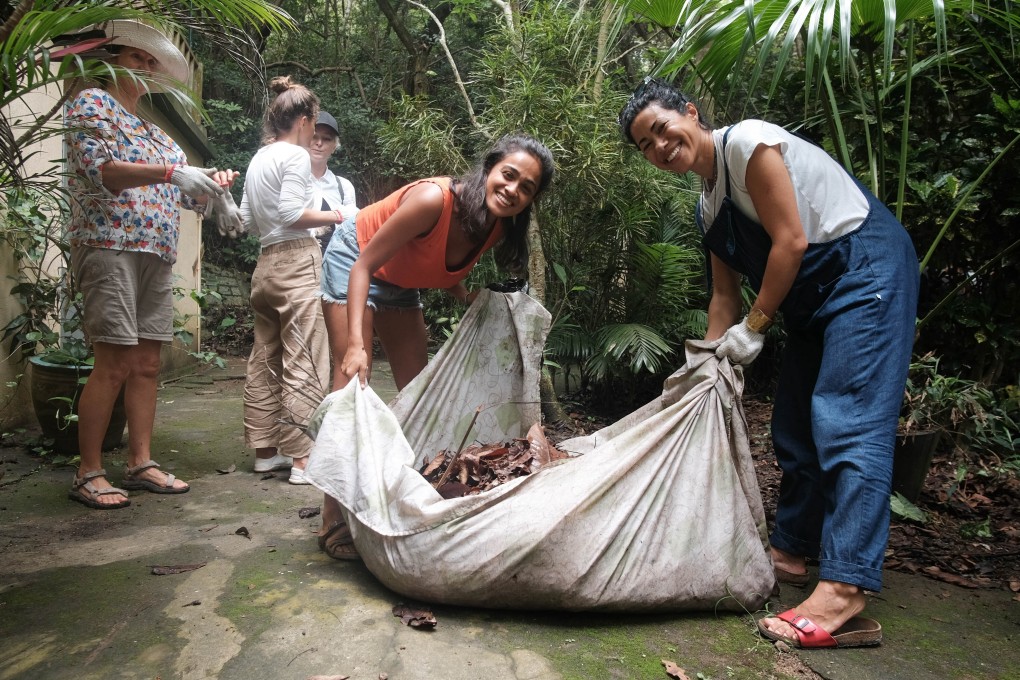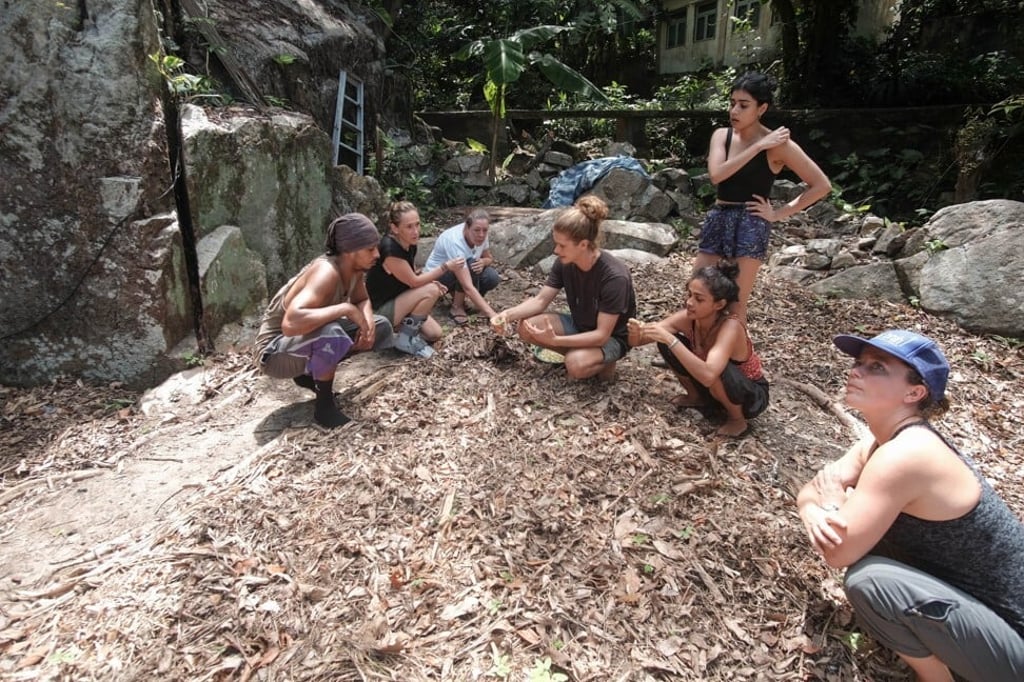Permaculture centre grows organic food, designs home gardens and offers lessons in gut health for Hongkongers
- ‘I began meditation … When that lens is turned inward, that’s when you start to see everything out there as different,’ says sustainability advocate
- Matthew Teague left restaurant job to found permaculture centre on Lamma Island that promotes composting, growing food at home, and regenerative agriculture

Not long ago, Matthew Teague could be found in the heart of Hong Kong juggling several plates as the general manager of a popular restaurant group in Central.
Today he’s spearheading a movement, called Bridge, and asking like-minded people to join him as he adopts a simpler life.
But a farm he did find, on Hong Kong’s Lamma Island. There, he’s embraced permaculture, as in “permanent agriculture”, trying to provide a framework for living in harmony with nature that gives back more than is consumed. Permaculture is a movement developed in the 1970s as a solution to an increasingly overburdened food system.

“Globally, we’re trying to squeeze infinite growth out of a finite system of resources – and if people don’t wake up and change their consumption habits, then we’re headed for a pretty serious system collapse,” the 27-year-old says.